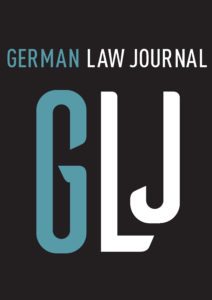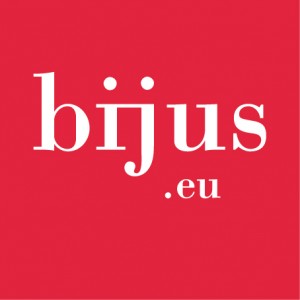Oct 30, 2019
Données bibliographiques / Bibliografische Daten |
|---|
| Auteurs / Autoren: | WALDHOFF, CHRISTIAN; WITTMER, FABIUS |
|---|
| Source / Fundstelle: | https://www.cambridge.org/core/journals/german-law-journal/article/religious-education-in-germany-in-light-of-religious-diversity-constitutional-requirements-for-religious-education/DA53CF0E68B465C7FD4E027BAD3887AF# |
|---|
| Revue / Zeitschrift: | German Law Journal |
|---|
| Année / Jahr: | 2019 |
|---|
| Localisation / Standort: | German Law Journal, Volume 20, Issue 7, pp. 1047-1065 |
|---|
| Catégorie / Kategorie: | Droit de la religion, Religionsrecht |
|---|
| Mots clef / Schlagworte: | Religionsrecht, Religionsverfassungsrecht, Éducation religieuse, Enseignement de la religion |
|---|
 Abstract:
Abstract:
In Article 7, paragraph 3, the German Constitution provides that religious education shall be a part of the curriculum of public school. This is one of the three approaches of dealing with religious education existing today. Originally, religious education as a regular subject at public schools in Germany was only offered by the two Christian Churches—Catholic and Protestant. As the number of Christians decreased and the number of Muslims increased, the demand for Islamic religious education at public schools grew. Therefore, the question arose whether the constitutional law concerning religion is capable of facing the new challenges of religious diversity. This article tries to answer this question with regard to the introduction of Islamic religious education as a measure of adaptiveness. In the first step, the requirements of Article 7, paragraph 3 of the Constitution posed to religious education will be outlined in order to be able to examine in the second step whether Islamic religious education may be introduced at public schools as a regular subject. In this regard, the issue of the qualification of an umbrella association as a religious society and the constitutionality of the advisory board model will be discussed.
Juin 27, 2015
Données bibliographiques / Bibliografische Daten |
|---|
| Auteurs / Autoren: | LABORDE, FRANÇOISE |
|---|
| Source / Fundstelle: | IN: Sénat, Étude de législation comparée n° 256 - 22 juin 2015, http://www.senat.fr/notice-rapport/2014/lc256-notice.html |
|---|
| Année / Jahr: | 2015 |
|---|
| Catégorie / Kategorie: | Droit constitutionnel, Politik, Wirtschaft und Gesellschaft, Politiques, économie et société, Staatsrecht |
|---|
| Mots clef / Schlagworte: | Bekenntnisfreie Schule, Ethikunterricht, Grundgesetz, LÄNDER, Religionsmündigkeit, Religionsunterricht, SCHULWESEN, Cours d’éthique, Ecoles laïques, Enseignement de la religion, LOI FONDAMENTALE ALLEMANDE, Majorité religieuse, SYSTEME SCOLAIRE |
|---|

Note de synthèse:
Cette note porte sur l'enseignement de l'éthique, l'enseignement du fait religieux et l'enseignement religieux dans sept pays de l'Union européenne : Allemagne, Belgique, Espagne, Italie, Pays-Bas, Royaume-Uni et Suède dans l'enseignement primaire et dans l'enseignement secondaire général.
Elle repose sur l'étude de textes officiels de portée nationale et n'analyse pas les initiatives prises dans certains établissements de façon décentralisée.
Elle ne prend pas en compte les questions ayant trait au statut des enseignants, s'attachant à l'organisation disciplinaire propre de la matière ou à son traitement dans d'autres disciplines.
Elle évoque pour chacun de ces pays, lorsqu'ils existent :
- l'enseignement d'une éthique entendue comme une morale laïque ou philosophique ;
- l'enseignement du « fait religieux » ou ses équivalents ;
- et l'enseignement de la religion.
Elle sera complétée par une note relative à l'enseignement de la citoyenneté.

 Abstract:
In Article 7, paragraph 3, the German Constitution provides that religious education shall be a part of the curriculum of public school. This is one of the three approaches of dealing with religious education existing today. Originally, religious education as a regular subject at public schools in Germany was only offered by the two Christian Churches—Catholic and Protestant. As the number of Christians decreased and the number of Muslims increased, the demand for Islamic religious education at public schools grew. Therefore, the question arose whether the constitutional law concerning religion is capable of facing the new challenges of religious diversity. This article tries to answer this question with regard to the introduction of Islamic religious education as a measure of adaptiveness. In the first step, the requirements of Article 7, paragraph 3 of the Constitution posed to religious education will be outlined in order to be able to examine in the second step whether Islamic religious education may be introduced at public schools as a regular subject. In this regard, the issue of the qualification of an umbrella association as a religious society and the constitutionality of the advisory board model will be discussed.
Abstract:
In Article 7, paragraph 3, the German Constitution provides that religious education shall be a part of the curriculum of public school. This is one of the three approaches of dealing with religious education existing today. Originally, religious education as a regular subject at public schools in Germany was only offered by the two Christian Churches—Catholic and Protestant. As the number of Christians decreased and the number of Muslims increased, the demand for Islamic religious education at public schools grew. Therefore, the question arose whether the constitutional law concerning religion is capable of facing the new challenges of religious diversity. This article tries to answer this question with regard to the introduction of Islamic religious education as a measure of adaptiveness. In the first step, the requirements of Article 7, paragraph 3 of the Constitution posed to religious education will be outlined in order to be able to examine in the second step whether Islamic religious education may be introduced at public schools as a regular subject. In this regard, the issue of the qualification of an umbrella association as a religious society and the constitutionality of the advisory board model will be discussed.

